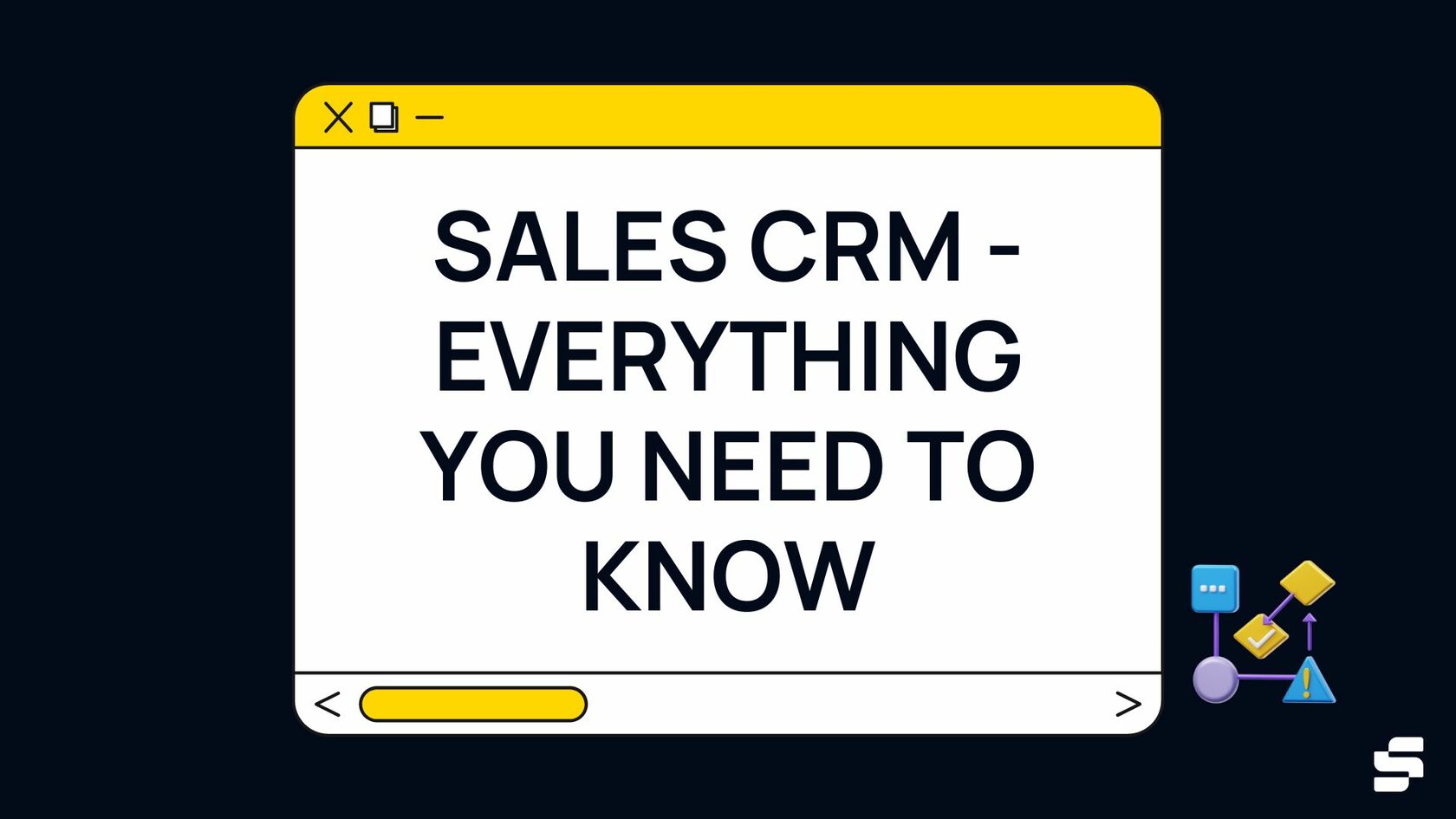Every sale is a story of connecting needs with solutions and questions with answers. A sales customer relationship management (CRM) system is essential for facilitating these connections. It helps track customer interactions and creates meaningful engagements that drive business forward.
However, many sales organizations are not fully utilizing this powerful, game changing tool. According to the latest State of Sales report, two-thirds of sales professionals feel overwhelmed by too many sales applications, and only 37% believe their organizations fully leverage their CRM systems. Let’s explore how a sales CRM can improve productivity and streamline operations to enhance every customer interaction.
What is a Sales CRM?
A sales CRM is software designed to help sales teams manage their interactions with customers and streamline pipeline management. It securely stores customer data, leverages the power of artificial intelligence (AI) to automate key tasks and generate content, and optimizes sales processes to increase efficiency and revenue.
Why is a Sales CRM Important?
The State of Sales report indicates that 69% of sales professionals need efficient tools to manage job complexity. A sales CRM helps teams stay organized by storing customer details in one place, making it easier to track past interactions, follow up on leads, and close deals. This reduces time spent on administrative tasks, allowing salespeople to focus more on connecting with customers and closing sales.
Today’s CRMs are more than just databases. With AI capabilities, sales teams can access and analyze customer information and automate tasks such as drafting sales emails and prioritizing tasks, transforming them into a highly efficient revenue-generating unit.
How Does a CRM Help Increase Sales?
A CRM assists sales representatives in suggesting products or services that meet customer needs, following up on leads, and reconnecting at the right time. For example, if a customer has expressed interest in a product, the CRM records this interaction. When that product becomes available at a discount, the salesperson can reach out with a personalized offer. CRMs can also automate follow-up reminders, encouraging customers toward a purchase.
Here’s how a CRM can be applied at each stage of the sales cycle:
- Customer Research: Helps identify potential customers matching the ideal customer profile, improving efficiency from the outset.
- Prospecting: Centralizes prospect information, ensuring alignment between marketing and sales teams. This includes integrating communication channels like email and voice and video calls.
- Qualification: Automates the prioritization and qualification of leads, allowing sales teams to focus on prospects most likely to close.
- Presentation: Enables sales reps to tailor presentations to specific customer needs and concerns using CRM data.
- Proposal: Facilitates the creation of personalized proposals based on the unique interests and needs of prospects.
- Negotiation: Provides historical data and analytics to support sales reps during negotiations.
- Closing: Equips sales reps with tools for finalizing deals, such as follow-ups or necessary paperwork.
5 CRM Best Practices
A CRM system is most effective when it supports a well-defined sales strategy. Here are some tips to enhance CRM use:
- Focus on Process Before Automation: Refine existing processes before automating them. Align standard deals with CRM functionalities and develop workarounds for other scenarios. Use AI-powered tools for tasks like drafting emails and conducting account research.
- Connect Your CRM to Your Whole Business: Ensure the CRM serves as a hub for all customer-related information, integrated into every aspect of sales activities. This integration helps track sales opportunities and adjust strategies in real-time.
- Maximize Data Analytics: Keep CRM data consistent to avoid errors. Clean data enables the use of CRM analytics for real-time reports and dashboards, guiding decision-making and identifying areas for improvement.
- Streamline Quoting and Pricing: Use the CRM to manage product configurations and pricing adjustments. For complex products, consider a Configure, Price, Quote (CPQ) tool to ensure accurate, tailored quotes.
- Regularly Train Your Team: Continuous training is crucial for effective CRM use. Conduct sessions for new features or to address gaps in usage, ensuring the team can leverage the system to enhance sales activities.
Does Your Company Need a Sales CRM?
To determine the need for a sales CRM, evaluate current sales processes and future goals. A CRM is particularly beneficial for business if:
- Experiencing Growth: Scaling beyond a small team necessitates a CRM to manage increasing customer data and interactions.
- Managing Complex Sales: A CRM can simplify management of multiple product lines and diverse customer bases, offering personalized product offerings and pricing.
- Needing Better Customer Tracking: Detailed records of customer interactions are essential for tailoring future strategies.
- Seeking to Automate Manual Processes: CRMs can automate data entry, follow-up reminders, and more, freeing up time for customer relationship-building.
Tips for Choosing the Best CRM
Selecting the right CRM involves considering your unique business needs. What will you gain? What will it cost? How will you implement it? How will you train sales teams to use it? Key factors include:
- Seamless Integration: Ensure the CRM integrates smoothly with existing tools and platforms.
- Customization: Opt for a CRM that can be tailored to specific business requirements.
- Sales Automation: Prioritize CRMs that effectively automate routine tasks.
- Scalability: Choose a CRM that can handle growth and complex scenarios.
- Training and Support: Strong training and support are crucial for maximizing CRM benefits.
- Cost vs. Long-Term Benefits: Weigh initial costs against potential productivity gains and customer satisfaction improvements.
Use Your CRM to Tell More Sales Success Stories
A sales CRM serves as a comprehensive record with 360 degree views of customer interactions, helping improve productivity, foster meaningful customer engagement, and craft better success stories for your business.











